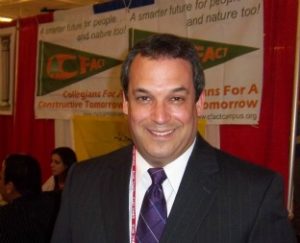This week on The Score: Is there freedom of speech on college campuses? Can grassroots activism change marijuana laws? Are we looking at the end of Europe? What’s the connection between fast horses and drug cartels? Those questions plus a review of Chappaquiddick and a tribute to activist David Rothbard.
http://bearingdrift.com/wp-content/uploads/TheScore-Apr14-2018-FullHour.mp3 [1]What’s happening on college campuses across the country? It seems that every day we hear reports about speakers being shouted down, microaggressions, and arguments that hateful speech is violence and thus can be answered with physical force.
Princeton University professor Keith Whittington has written a new book called Speak Freely: Why Universities Must Defend Free Speech [2]. He appeared at a recent book forum at the Cato Institute in Washington, where I pulled him aside for a short conversation.
Author Emily Dufton spoke on two [3] panels last month [4] at the Virginia Festival of the Book. She wrote Grass Roots: The Rise and Fall and Rise of Marijuana in America [5], which she based on her doctoral dissertation from the George Washington University. Her book traces the grass roots activism on both sides of the marijuana question back to the 1970s. One conclusion: whether you are for marijuana legalization or not, you are likely to base your position on the effect of the laws on children.
 One of our new features on The Score this week is something I’ll call “From the Archives.” This week I found an interview I did at the Conservative Political Action Conference, or CPAC, with conservative environmental activist David Rothbard, who passed away [6] earlier this month at the age of 53.
One of our new features on The Score this week is something I’ll call “From the Archives.” This week I found an interview I did at the Conservative Political Action Conference, or CPAC, with conservative environmental activist David Rothbard, who passed away [6] earlier this month at the age of 53.
On a personal note, I knew David from his days as a university student, when he was a leader of College Republicans in Connecticut. He invited me to speak at the state CRs convention in Hartford and we traveled in the same social and policy circles for several years after that. We would often travel in a caravan from Washington to Baltimore with CFACT [7] staff and others to attend Orioles games in the summer at Memorial Stadium, before there was Camden Yards. The fact that Memorial Stadium had one dedicated entrance for people who brought their own beverages, and we brought several large containers of pink lemonade mixed with vodka, had little if nothing to do with our enjoyment of the baseball games.
David partnered with Craig Rucker to start CFACT – Committee for a Constructive Tomorrow – in 1985. Their first big accomplishment was helping college students around the country retrieve the fees that were assessed against them to support left-wing organizations like Ralph Nader’s PIRG, the Public Interest Research Group.
CFACT went on to become a key advocate for tough thinking on environmental policy. Always engaged on the issues and arguing from principle, Rothbard and Rucker and their team of scientists and activists never stooped to name-calling. It was always about ideas, not personalities.
My chat with David Rothbard dates to 2012 [8].
Last week we talked to Jamie Kirchick [9] about domestic issues, such as social movements in favor of gay marriage and gun control.
This week, Kirchick discusses his book, The End of Europe: Dictators, Demagogues, and the Coming Dark Age [10], which looks at the state of international affairs across the Atlantic. Kirchick was formerly a Radio Free Europe/Radio Liberty correspondent based in Prague, so he knows the territory. I spoke to him at his office at the Brookings Institution in Washington.
Journalist Joe Tone has been the editor of the award-winning Dallas Observer. His writing has appeared in The Washington Post, The Village Voice, LA Weekly,and other publications. Last month at the Virginia Festival of the Book in Charlottesville, he talked about [4] the dramatic true story of two brothers living parallel lives on either side of the U.S.-Mexico border—and how their lives converged in a major criminal conspiracy. That is the tantalizing subject of his latest book, Bones: Brothers, Horses, Cartels, and the Borderland Dream [11].
Finally, I’m happy to introduce a new segment on The Score: movie reviews by critic Tim Hulsey. Tim saw the new film about the crime and cover-up of Chappaquiddick [12], the 1969 scandal that ended Senator Ted Kennedy’s presidential prospects. This will be, I hope, the first of many regular film reviews featured on The Score.
The content of next week’s episode is still in flux. I’ll be as surprised as you to hear it in its final form. So come back to find out what’s on The Score.